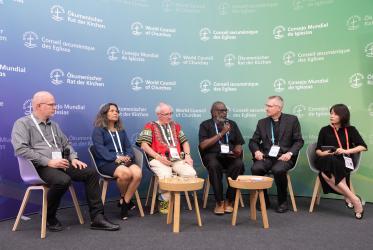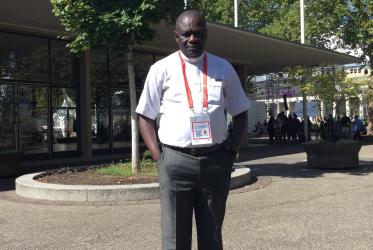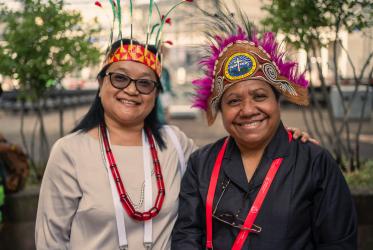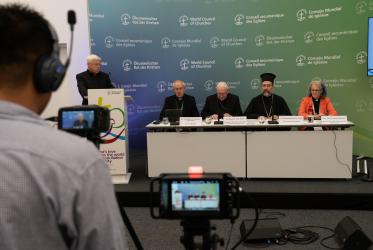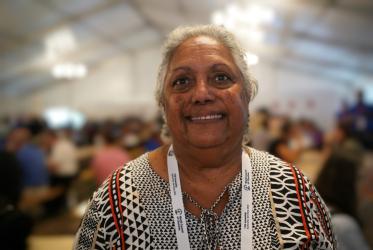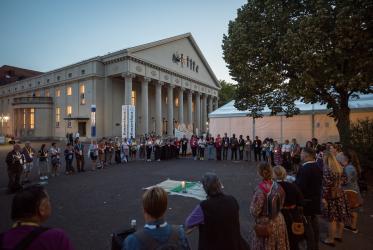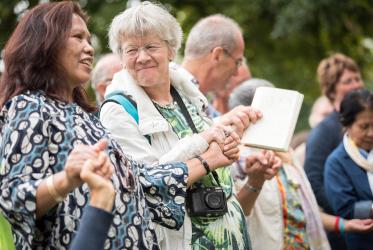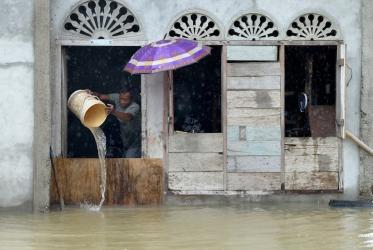Displaying 101 - 120 of 1128
WCC 11th Assembly: safe and welcoming environment for all
19 September 2022
Assembly workshop looked toward ending AIDS epidemic by 2030
19 September 2022
Promoting human dignity through art
06 September 2022
Indigenous women struggle for identity in Asia and beyond
05 September 2022
Women with disabilities want to belong in churches
31 August 2022
EDAN Pre-Assembly starts with induction of new members
29 August 2022
